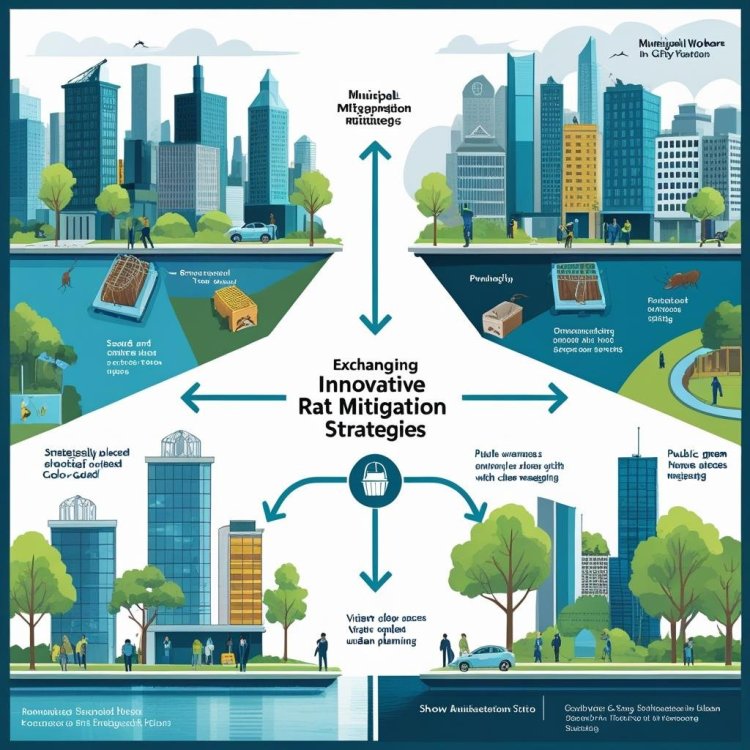A Cross-Pollination of Municipal Rat Mitigation Ideas
Exploring how different cities share and adopt innovative strategies to manage rat populations.

Rats are a common problem in many cities across the world. From New York to Los Angeles, from London to Mumbai, urban areas struggle to control rodent populations. These pests can cause damage to buildings, spread disease, and make neighborhoods feel unsafe.
But instead of working alone, many cities are now sharing ideas and learning from one another. This blog from pestcontrolglobal.com explores how municipal governments are teaming up and using new and smart strategies to fight back against rats.
Why Rat Problems Are Growing
Urban rats thrive in places where they can find food, water, and shelter. Overflowing trash bins, old buildings, and poorly maintained infrastructure can create perfect environments for rats. As cities grow, so do these problems.
In some places, climate change is also making rat issues worse. Warmer winters mean rats survive and breed year-round. With fewer freezing temperatures, rat populations grow faster.
The Power of Sharing Ideas Between Cities
Instead of every city solving the same problem on their own, more and more local governments are working together. They are:
-
Attending conferences about pest control
-
Sharing success stories online
-
Learning from city case studies
-
Partnering on pilot projects
This is what we mean by "cross-pollination" when one city's idea helps another city grow a better solution.
Case Study 1: New York City
New York has long battled rats, but in recent years, it has started using smarter technology. The city uses data from 311 calls (public complaints) to map rat activity. They also launched a program to give residents secure, rat-proof trash bins. In some neighborhoods, they're even testing rat birth control.
Case Study 2: Chicago
Chicago is known for its use of predictive data. The city looks at where garbage complaints and rat sightings overlap. Then they send pest control teams before the problem gets bigger. This helps save money and time.
Case Study 3: Toronto
Toronto focuses on public education. The city offers workshops and flyers that teach people how to prevent rats around homes and businesses. They also push for proper storage of food waste and recycling.
Smart and Simple Rat Mitigation Techniques
Many cities now use these effective tools:
-
Smart Trash Bins: These bins seal tightly and send alerts when full.
-
Dry Ice: Used in burrows, dry ice suffocates rats safely and quickly.
-
Rat Birth Control: Non-lethal methods that lower rat populations over time.
-
Better Sanitation Rules: Fines for leaving trash out too long or not sealing food waste.
-
Community Cleanups: Events where residents clean up and report rat nests.
Why Community Engagement Matters
No city can win the rat battle alone. People must be part of the solution. That means:
-
Reporting rat sightings
-
Storing trash properly
-
Sealing up holes around buildings
-
Not feeding birds or wildlife, which can attract rats
When communities get involved, rat problems drop faster. Cities with strong public education campaigns often see the best results.
What Can Cities Learn from Each Other?
Cities face different climates, cultures, and budgets. But they can still learn useful lessons:
-
What works in one place may inspire new ideas elsewhere
-
Data tracking helps every city spot problem areas early
-
Tech solutions often pay for themselves over time
-
Clean cities are healthier and safer for everyone
At pestcontrolglobal.com, we believe in the power of shared knowledge. By learning from one another, cities can take faster action and spend less money while keeping neighborhoods rat-free.
FAQ
Q: What is municipal rat mitigation?
A: It means the steps local governments take to control or reduce rat populations in cities.
Q: Why are rats such a big problem in cities?
A: Cities have lots of food waste, water sources, and shelter, which make great homes for rats.
Q: How do cities share rat control ideas?
A: Cities share through conferences, online reports, city partnerships, and success stories.
Q: Can regular people help stop rats?
A: Yes! People can help by sealing garbage, cleaning up areas around buildings, and reporting rats.
Q: What is rat birth control?
A: It’s a safe, non-lethal product that stops rats from having babies. It helps lower rat numbers over time.
Q: Do smart trash bins really work?
A: Yes, they keep rats out and help cities collect trash more efficiently.













